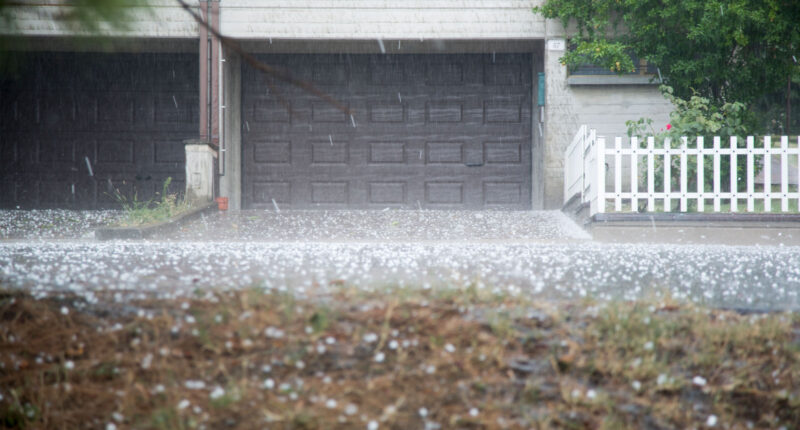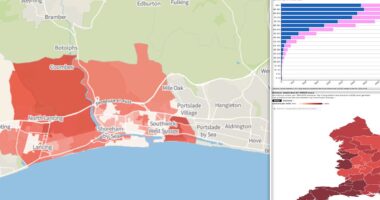Recent homebuyers may be unaware that they might be required to spend a substantial amount on repairs soon after moving in, despite the fact that the damage was not present when they purchased the property.
One furious buyer in North Carolina was charged $13,000 in HOA fees for damage that occurred two years before he moved in, and he could be helpless.


When buyers sign the dotted line on their new home, they get to enjoy all the perks of homeownership.
They also have to pay for every single issue that crops up.
This means that even if the previous owner has failed to fix crucial problems, it could be up to the new owner to foot the bill.
One angered homeowner wrote to Moneywise for advice after experiencing some struggles with their new HOA.
They said the HOA wants money for hail storm damage that hasn’t been repaired for the past two years.
The homeowner desperately wished to brush the issue aside as they had only just purchased the property, but experts warn they could be on the hook.
It all depends on when the HOA actually caught the violation.
Homeowners are advised to get a thorough inspection before they finalize a sale.
This way, they can point out damages and necessary repairs to negotiate whether the seller should pay for anything.
However, if any issues with the home aren’t caught until after the sale is finalized, it’s up to the new owner to fix them.
Generally, if the previous owner racks up HOA fees, this isn’t something that can be imposed on the new owners.
But, if an HOA catches the violation after the sale, the new owner can expect to pay out extra fees.
This is one of several reasons why some buyers can’t stand HOAs.
Other homeowners were horrified after being slammed with a $16,000 HOA fee for property repairs just days before Christmas.
Some of the fine recipients, who lived in the Minneapolis suburb of Rogers, Minnesota, said they didn’t even need the repairs.
The HOA wanted property owners to replace their roofs after a hail storm blew through the community in July.
However, homeowner Bridget Newman said her roof had just been replaced two years prior and that inspectors believed she was in good shape.
One homeowner stated to Fox affiliate KMSP-TV, “If we choose not to pay for the repairs, we have been informed that we will incur fines, penalties, and there is a possibility of a lien being placed on our home.”
According to Sharper Management, the company that runs the HOA, property owners should be able to fund the repairs through home insurance.
The U.S. Sun reached out to Sharper Management for further comment but didn’t hear back.
Another resident was evicted from her home and forced to live in her car just weeks before the holidays.
And a property owner got a “weird” email from his HOA blasting his birthday party.
What is an HOA?

One in five Americans live in an area with a Homeowners’ Association – or HOA. But what exactly is it that they do?
- An HOA is a homeowner’s association – an organization that aims to maintain a clean and cohesive place to live for its residents.
- Entire neighborhoods, subdivisions, condominiums, family homes, or townhouses within “a planned development” will often make up an HOA.
- They also act as a governing body for tenants, who run and fund the HOA through monthly fees.
- Their principal aims are to keep the community functioning and visually appealing and to maintain property values.
- They primarily focus on common areas of a neighborhood, such as roads, parks, and pools – but may also stipulate what residents can do with their properties, such as yards and driveways.
- Often these restrictions enforce uniformity on properties, for example, ensuring most houses look the same and all driveways are clear of weeds.
- An HOA rulebook of covenants, conditions, and restrictions (CC&R) is distributed to all residents, and an elected volunteer board of directors enforces these regulations.
- Breaking these rules can result in penalties such as fines and even litigation – as most HOAs are incorporated and subject to state law.
- HOAs are often the subject of controversy, with some members feeling that the rules are too punitive and restricting, or that the leadership has too much power.
- But others like that HOAs give communities the power of self-governance, and can ensure a degree of harmony between residents.

















